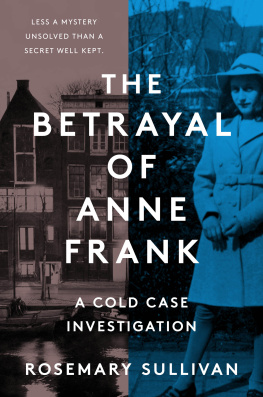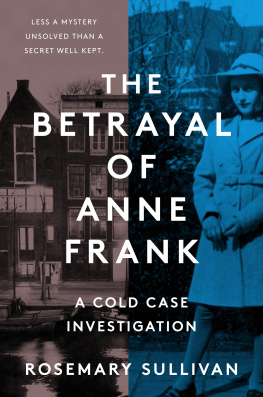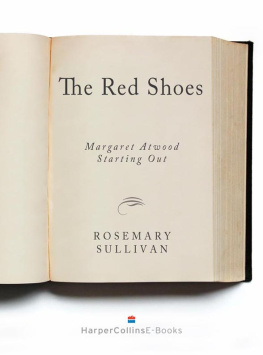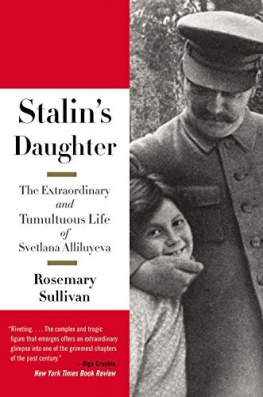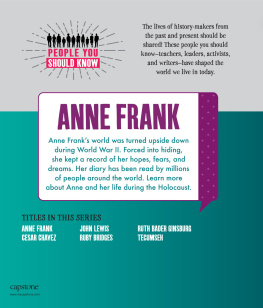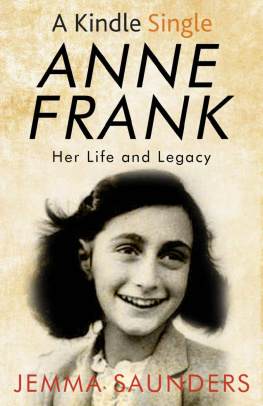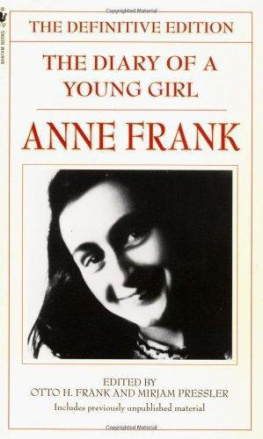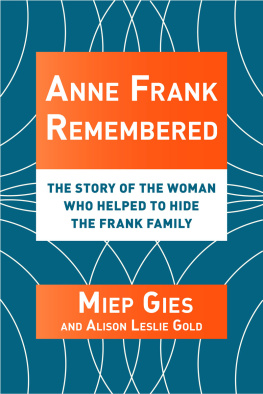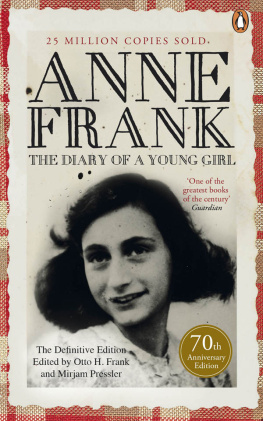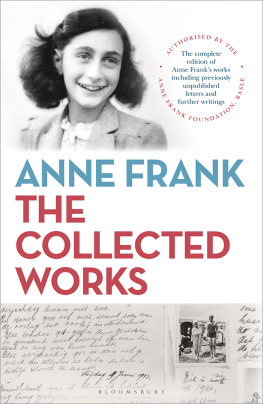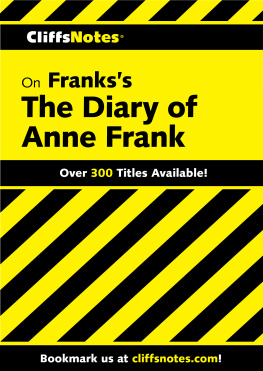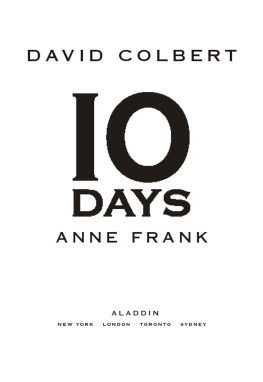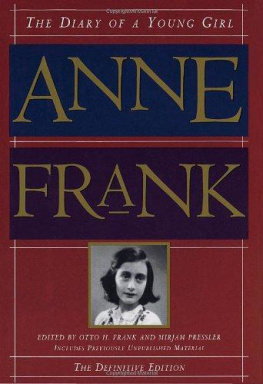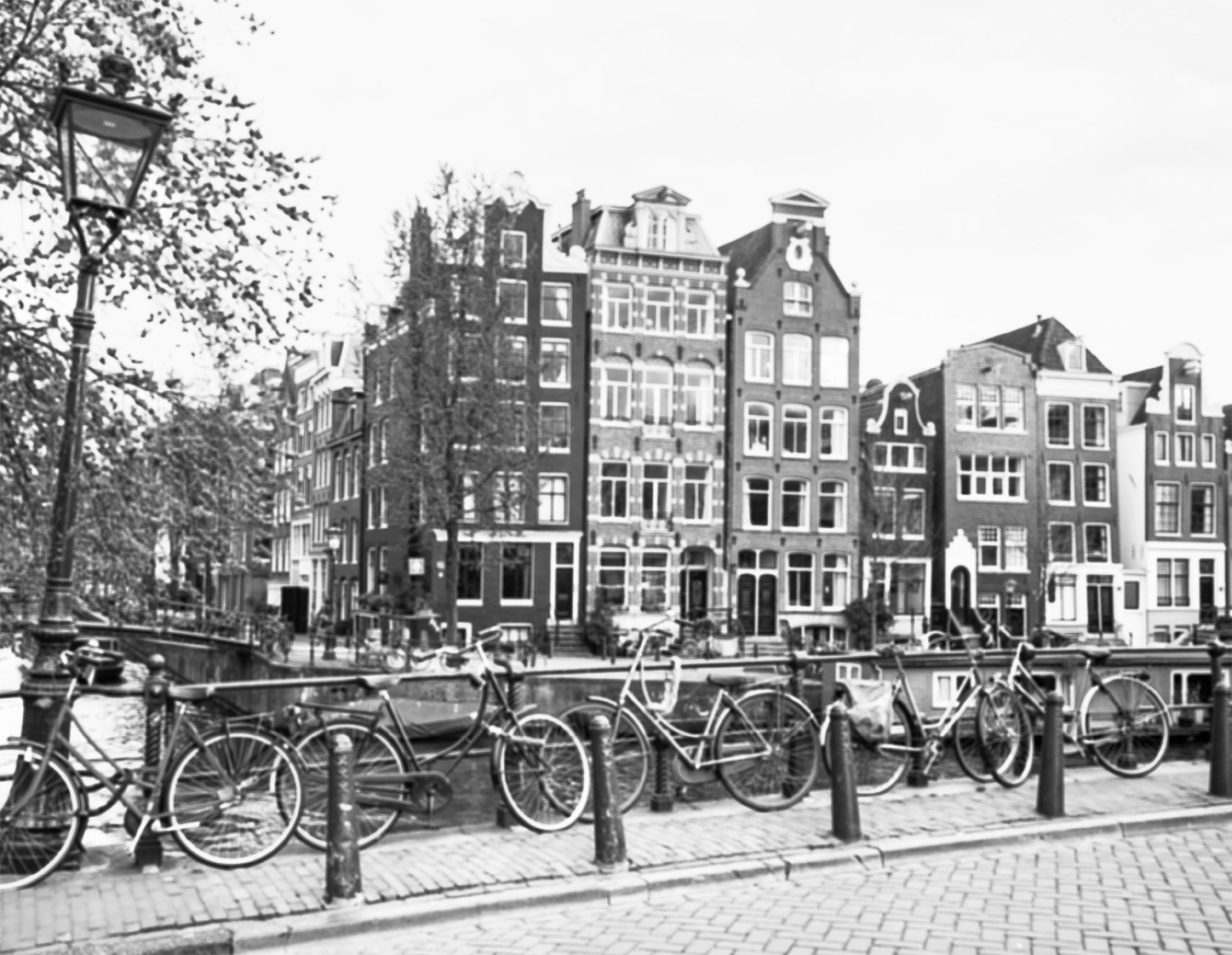Contents
Guide
Contents
I landed at Amsterdams Schiphol Airport on Friday, May 3, 2019, and took a taxi to an address on Spuistraat, in the very center of Amsterdam. A woman from the Dutch Foundation for Literature was there to greet me and show me around the apartment I was to occupy for the next month. Id come to Amsterdam to write a book about the cold case investigation into who betrayed Anne Frank and the other residents in the secret Annex on August 4, 1944, a mystery that had never been solved.
Most of us know the basic outline of the Anne Frank story: that the Jewish teenager hid with her parents, her sister, and some family friends in an attic in Amsterdam for more than two years during the Nazi occupation of the Netherlands in World War II. The group was eventually betrayed and sent to concentration camps, and only Otto Frank, Annes father, survived. We know all of this largely because of the remarkable diary Anne left behind that August day when the Nazis came to take them away.
Part of the cultural narrative in the Netherlands, the Anne Frank story had always resonated strongly with the Dutch filmmaker Thijs Bayens, who in 2016 invited his friend the journalist Pieter van Twisk to join him in the project, which started out as a documentary but soon included a book. Momentum built slowly, but by 2018, there were at least twenty-two people working directly on the case, with numerous professional consultants offering their expertise. The investigation began with the challenge of identifying the betrayer, but it soon expanded. The Cold Case Team, as they came to be called, wanted to understand what happens to a population under enemy occupation when ordinary life is threaded with fear.
The day after I arrived, Saturday, May 4, was National Remembrance Day, when the Dutch remember the atrocities of World War II and commemorate the costly victory. Thijs Bayens had invited me to join him and his son Joachim in the silent procession through the streets of Amsterdam that marks the beginning of the memorial ceremonies.
We were perhaps two hundred people, though the crowd grew as we walked through the city. We listened briefly to the Roma orchestra playing in front of the opera house and then continued through the Jewish Quarter, passing the monumental Portuguese Synagogue, the Jewish Historical Museum, and the Hermitage, where memorial plaques were scattered over the ground. We turned left and followed the Amstel River, walking over the white, wooden Magere Brug (Skinny Bridge), which the Nazis had barricaded with barbed wire on February 12, 1941, to seal off the Jewish Quarter. (It had been opened again after a few days under pressure from the municipality.) We continued through the citys center until we arrived at de Dam (Dam Square). It was packed with about twenty-five thousand people whod come to see the king and queen and to hear the mayor of Amsterdam, Femke Halsema, address the crowd. She said:
To write a note or call; to make your voice heard, or not; to embrace your lover; cross the street, or not; to come here tonight, to the Dam on May 4, or not. Each time, hundreds of times per day, we choose, without thinking, without constraint.... What does it do to a person to lose all freedom? To be occupied? When the space around your shrinks?
Our freedom was preceded by pain and great sorrow.... That is why we pass on the memory of unfreedom, as if the war were yesterday. That is why we commemorate... this year, next year, and all the years after that.
The next day, after Id settled in, Thijs and I met for dinner. We talked about politics in Europe, particularly about growing xenophobia and anti-immigrant sentiments. Then I asked him why he had decided to undertake this cold case investigation. He said that as a filmmaker, you bring your own life into your work. Hed grown up in Amsterdam in the 1970s, when the city was well known all over the world for its idiosyncratic, free-spirited character. There were squatters, artist villages, peace demonstrations. Then you felt free and showed it. But all that has changed. In the Netherlands, in Europe, in North America, we are watching an inundation of racism and fear.
Months back, hed been on the Prinsengracht and gotten stuck in a long line of visitors to the Anne Frank House. As he watched the crowd, it occurred to him that the Frank family and the others hiding in the attic had just been ordinary people in an ordinary neighborhood full of acquaintances and colleagues, neighbors and retailers, uncles and aunts. It was that simple. And then the creeping machinations of fascism had set in. Slowly but surely, human relationships had come under pressure and people had turned on one another.
Thijs left the crowd in front of the Anne Frank House and made a decision: he would begin a public conversation. Amsterdam was no longer a bastion of individualism. Where there was once tolerance, now there is distrust. At what point do we give up on one another? Whom do we stand up for? And for whom do we not stand up? The betrayal of Anne Frank would be the way into that conversation. Thijs told me that there is a sixty-foot-high mural in the north of Amsterdam that overlooks almost the entire city. It is a portrait of Anne with a quote from her diary: Let me be myself. I think shes talking to us, he said.
Thijs wanted to show me something. We strolled to the nearby Torensluis, one of the widest bridges in Amsterdam, crossing over the Singel canal. Looming in front of me was a large sculpture on a marble plinth. Thijs said this was the nineteenth-century author Eduard Douwes Dekker, considered to be one of the Netherlands greatest authors. He was famous for his novel denouncing the abuses of colonialism in the Dutch East Indies. When Thijs added that the sculpture had been made by his father, Hans Bayens, I was taken aback. A number of his fathers sculptures are scattered through Amsterdam, Utrecht, Zwolle, and other cities.
Thijs explained that his father had rarely spoken of the war. It had been too traumatic. His mother said that years after the war ended, his father would often wake in the midst of a nightmare, his hands reaching toward the window, screaming that bombers were flying overhead.
Thijs never met his grandparents; both died before he was born. But hed heard stories. What had left the greatest impression on him was his discovery that their house had been a doorgangshuis (transit place), used by the resistance to hide Jews. There were always a number of Jews hiding in their basement, some for weeks at a time, while the resistance looked for more permanent addresses where they could go underground.
When he started the Anne Frank project, Thijs spoke to his fathers best friend to ask him what he remembered about the war. The friend told him to interview ninety-three-year-old Joop Goudsmit, who had stayed with Thijss grandparents throughout the war. Goudsmit had become part of the Bayens family and was able to describe the house, the room in the basement where he had hidden, the banned radio concealed under the floorboards in the closet, and the number of Jews who had come through. He said that the risks the Bayenses had taken, including contacts with forgers of identity cards, had been extreme.
Its baffling to think that Thijss father never told him about that, but it was typical. After the war, so many claimed, falsely, to have been involved with the resistance that those who took the real risks, such as Thijss grandparents, often preferred to remain silent. But the war had shaped Thijss family, and he recognized that the search for what had led to the raid on the secret Annex would enable him to enter the labyrinth of his own family history. Anne Franks is an iconic story, but it is also a terrifyingly familiar one, repeated hundreds of thousands of times throughout Europe. Thijs said he also saw it as a warning. This must never be allowed to happen again, he said.

